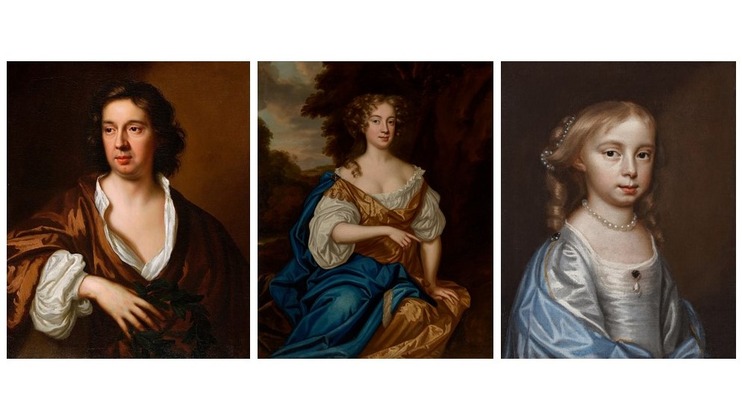Fruit of Friendship: Portraits by Mary Beale
An illuminating exhibition at the Philip Mould Gallery featuring three works not seen in public before
This entry has expired.

Mary Beale (1633-1699) was one of Britain’s first professional woman artists. Working throughout the turbulent late-17th century, she established one of the earliest successful studios for a British woman artist. This exhibition will span her entire career and include self-portraits, portraits of her family and friends, and formal commissions. Featuring 25 of her works from public and private collections, including some works never seen before in public.
Fruit of Friendship will also shed light on Beale’s progressive studio practice and highlight its radical reversal of conventional gender roles for the period. Beale’s husband Charles, dedicated himself to his wife’s career and supported her studio diligently by priming canvases, manufacturing pigments, and recording business in a series of notebooks and almanacs.
The exhibition will present three works not seen in public before. These include an early re-discovered portrait of the artist’s husband, dressed theatrically in a fur hat, a rare example of a formal portrait of an identified child, and a portrait of Anne Sotheby, which will be displayed in the gallery for two weeks before it is exhibited in Tate Britain's upcoming exhibition Now You See Us: Women Artists in Britain, 1520–1920. (all three arepictured above).
Friendship played a crucial role in Beale’s artistic practice and the exhibition takes its title from her own words. In 1666, Beale wrote her Discourse on Friendship, which explicitly outlines her progressive ideas on equality between friends. Beale pioneered a practice that was both supported by and reliant on her immediate circle; from friendship and trust established within the home between her husband and children, to the bonds she created throughout her wider circle of neighbours, friends, and fellow artists including the King’s painter, Sir Peter Lely (1618-1680). It is through Beale’s portraits that a woman of multiple identities emerges - artist, businesswoman, mother, wife, and friend.
The Philip Mould Gallery has had a long association with Beale’s works and sold Tate Britain their first example of the artist’s work in 1992 as well as supplying her works to other museums internationally.
The exhibition will be complemented by an openly available online catalogue. In anticipation of a comprehensive printed publication scheduled for Summer 2024, this online resource will serve as an accessible guide to her works and their significance.
Further Information: Philip Mould & Company
Venue details
- Address:
- Philip Mould Gallery
- 18-19 Pall Mall
- London
- SW1Y 5LU